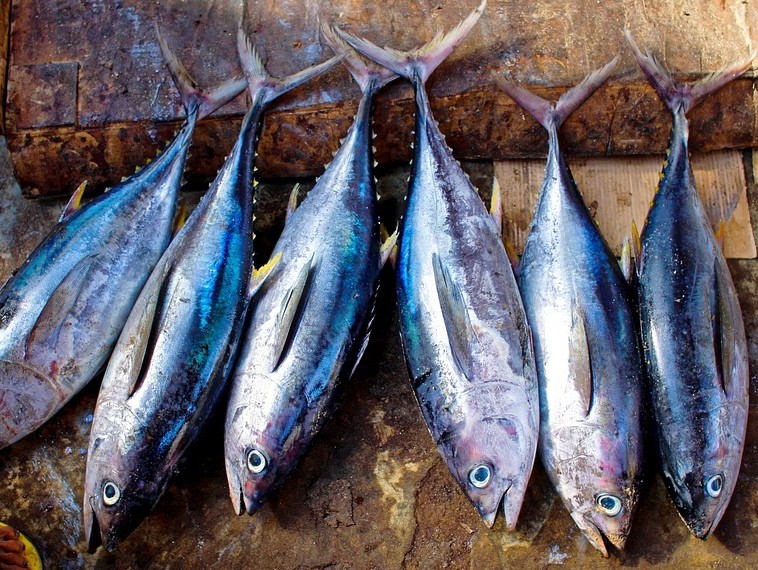
The Netherlands loves tuna. There is no doubt about that. As a steak, on a pizza, through a salad or in a trendy lemur sushiroll - tuna ranks second among the favourite and most eaten fish species in our country, especially from a can.
But the knowledge of tuna among Dutch fish lovers is limited. The sustainability of tuna is considered important, although there is a lot of uncertainty about when tuna is sustainable or not.
This is evident from the National Tuna Survey conducted in March 2019 by research agency Motivaction, commissioned by the Marine Stewardship Council, the organisation behind the MSC quality mark for sustainable fishing. The survey looked in depth at the level of knowledge, purchasing behaviour, attitudes and expectations of consumers with regard to (sustainable) tuna. MSC will publish the results of the study on 2 May, International Tuna Day, which was established by the United Nations in 2016 to promote the sustainable management of tuna.
Little knowledge about sustainable tuna
The Dutchman chooses tuna mainly because of its delicious taste (72%) and because tuna is both healthy (63%) and easy to prepare (40%). But there is little knowledge about tuna. For example, two out of three fish eaters are not familiar with the different types of tuna. There is also great doubt about where the tuna is actually caught. When buying, quality, price and shelf life are decisive. Sustainability is considered important, but what this really means for tuna in practice is unclear to the majority of consumers. Preventing overfishing is most often mentioned as a factor for sustainability.
For the oceans, the good news is that more than two-thirds (68%) of consumers are concerned that their tuna should be caught sustainably. At the same time, the majority of them find it difficult to decide for themselves when a fish product is sustainable or not (also 68%). This is why shoppers often do not know exactly what to look out for when they want to buy sustainable fish (41%). No wonder the need for clear information is great. A reliable and independently verified label can provide quick help and orientation on the shelf. 44% of fish buyers say they look for it; and when buying tuna, the presence of a hallmark and independent certification are among the most important sustainability aspects.
So there are certainly good intentions with regard to sustainable tuna consumption in the Netherlands. But lack of knowledge and uncertainty often stand in the way of these intentions on the shop floor. Recognised advice can provide support. For example, MilieuCentraal, an independent environmental information organisation, has been commissioned by the government to investigate which labels are reliable, ambitious and transparent. For wild-caught fish, the MSC ecolabel is the only one that meets this qualification as a TOP ecolabel.
The Dutch agree, according to the study by Motivaction: Two out of three consumers already know the MSC ecolabel and 63% think that by buying fish with the MSC ecolabel they are making a good contribution to sustainable caught fish. And although consumers clearly need information about sustainable fish and ecolabels, almost a third (31%) are not prepared to actively look for them themselves.
The responsibility for a sustainable tuna supply is therefore often placed with the producers, the shops or the government. And all this while the consumer actually has an important key in their hands - by opting for sustainable tuna with an MSC ecolabel, which has been independently verified.
Source: © MSC